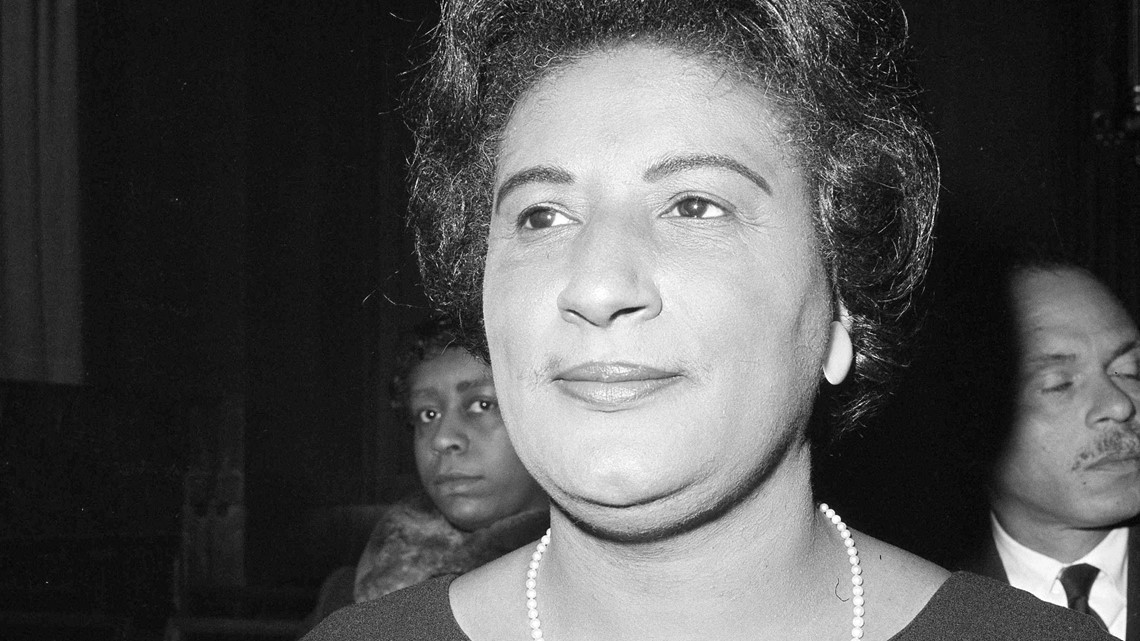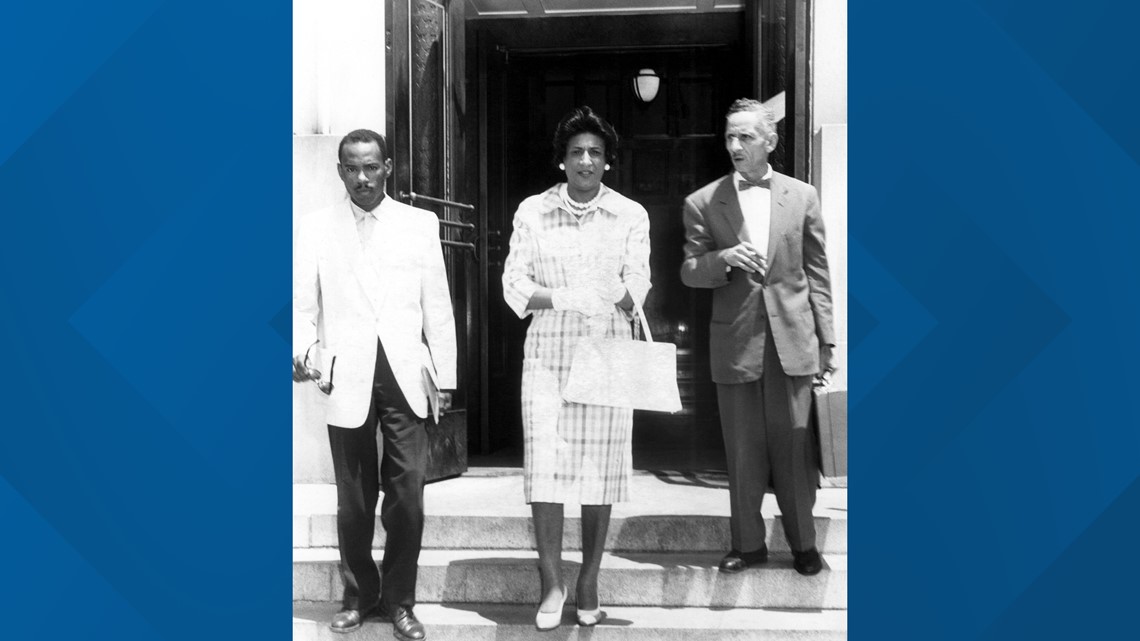NEW HAVEN, Conn. — The White House on Friday celebrated the confirmation of Judge Ketanji Brown Jackson as the first Black woman to reach the U.S. Supreme Court.
Jackson, who was confirmed by the Senate on Thursday, will take the bench later this year, filling the shoes of retiring Justice Stephen Breyer on a court that was made up entirely of white men for more than almost two centuries.
Jackson, at times speaking through tears, thanked her family and mentors for their support. She also mentioned Constance Baker Motley, the first Black woman to be named a federal judge, as her role model and hero. The two women share the same birthday.
Who is Constance Baker Motley?
Judge Motley was born on Sept. 14, 1921, in New Haven, Connecticut, the ninth of 12 children. Her parents, Rachel Huggins and McCullough Alva Baker, were immigrants from the Caribbean island Nevis.
Huggins was a community activist and founded the New Haven NAACP.
While attending Hillhouse High School, she became the president of the New Haven NAACP youth council and was secretary of the New Haven Adult Community Council. She graduated in 1939 with honors, however, she lacked the means to attend college.
However, she impressed local New Haven businessman Clarence Blakeslee, who heard her speak at a New Haven community, and agreed to pay for her education.


Judge Ann Claire Williams wrote in a 2019 tribute to Motley in Judicature magazine that Blakeslee’s act of kindness had a lasting impact.
“She learned as a teenager the importance of compassion and developed then a belief that one committed person can make a difference in the world,” Williams said.
Motley began at Fisk University, a historically Black college in Nashville, Tennessee, before transferring to New York University. She graduated with a Bachelor of Arts degree in economics in 1943 and then went on to receive her Bachelor of Laws from Columbia Law School in 1946.
She married real estate and insurance broker Joe Wilson Motley.
Unlikely Civil Rights Hero
While studying law, Motley joined the legal staff with the NAACP Legal Defense Fund, and through her work there from 1945 to 1964, she was one of the lead strategists for most of the major Southern civil rights protests. The boss who hired Motley: future Supreme Court Justice Thurgood Marshall.
During her time with the NAACP, she wrote the initial complaint in the case that would become the landmark Brown v. Board of Education, which sparked a 1954 Supreme Court ruling outlawing school segregation.
In 1961, she became the first Black woman to argue a case before the Supreme Court.
By the time she left the NAACP in 1965, Motley had argued 10 Supreme Court cases – winning nine – and assisted in nearly 60 cases that reached the nation’s highest court. The 10th case was eventually overturned in her favor.
Perhaps her most famous case was helping James Meredith, with the backing of the Fifth Court of Appeals, gain enrollment to the University of Mississippi.


Taking up the bench
After nearly 20 years with the NAACP, Motley chose to serve on the New York State Senate, becoming the first Black woman to serve in that branch of the Legislature. A year later she was elected President of the Borough of Manhattan, becoming the first woman to hold the position.
Motley was appointed in 1966 by President Lyndon Johnson to the U.S. District Court of the Southern District of New York. With this appointment – which was fiercely contested by a group of Southern senators – she became the country’s first Black female federal judge.
On the bench, she continued to protect constitutional rights. In 1978, she upheld the right of a woman sports reporter to enter the locker rooms of professional sports teams, as male reporters did.
Motley went on to become Chief Judge of the court in 1982 and Senior Judge in 1986.
Her Legacy
In 1998, Motley released her autobiography “Equal Justice Under Law.” She also went on to receive honorary doctorates from numerous institutions including Spelman College, Howard University, Princeton, Brown University, the University of Connecticut, Yale University and more.
In 1993, she was inducted into the National Women’s Hall of Fame. President Bill Clinton awarded her the Presidential Citizen’s Medal in 2001.
Motley died in New York on September 28, 2005.
---
Have a story idea or something on your mind you want to share? We want to hear from you! Email us at newstips@fox61.com
---
HERE ARE MORE WAYS TO GET FOX61 NEWS
Download the FOX61 News APP
iTunes: Click here to download
Google Play: Click here to download
Stream Live on ROKU: Add the channel from the ROKU store or by searching FOX61.
Steam Live on FIRE TV: Search ‘FOX61’ and click ‘Get’ to download.

